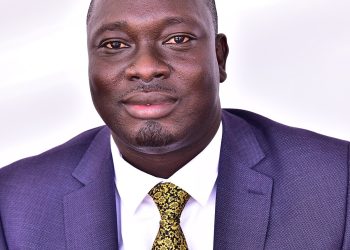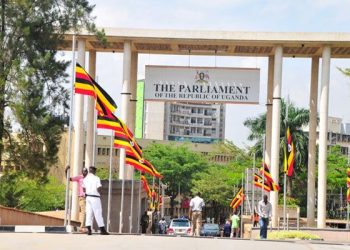Parliament is set to consider a new piece of legislation whose effect will have a big bearing on how numerous office bearers, including that of the Leader of Opposition (LOP) will be appointed, secure their tenure and provide process (and grounds) for removal from office.
Tabled before Parliament on Tuesday, the Administration of Parliament (Amendment) Bill, 2015 will also bring changes in the manner in which the Opposition Chief Whip is appointed besides creating new offices of Deputy Opposition Chief Whip and Dean of Independents in Parliament.
A private members’ Bill by Andrew Baryayanga (Kabale Municipality), the Bill seeks to provide for the election of the LOP, Chief Opposition Whip, Deputy Chief Opposition Whip and Dean of Independents through secret ballot. Although the Bill highlights the need to change the way in which back bench members of the Parliamentary Commission are designated, there is a conspicuous absence of any clause addressing the same.
In the object of the Bill, it is made clear that Parliament wants to draw a line under the current system where it is ‘held hostage’ by forces it has no control over through having lawmakers holding the aforesaid key positions to feel answerable to their peers that elected them and not their parties.
“The manner in which the LOP is designated and removed is not transparent. This has led to the subjugation of the views of other opposition political parties in Parliament. It has made it impossible for the opposition members to hold the LOP accountable and has resulted in the LOP not enjoying security of tenure,” it is noted in the Bill’s preamble.
To cure the mischief, the Bill is providing for the party with the greatest numerical strength to nominate three names each for the positions of LOP, Chief Opposition Whip and Deputy Opposition Whip to be subjected to a secret ballot by all opposition lawmakers. The secret ballot will be presided over by the Clerk to Parliament.
All office bearers will hold office for five years and will only be liable for removal over grounds like mental incapacity and conduct deemed prejudicial to the image of Parliament. And even then, there will be a process involving formal notice to the Speaker signed by a third of opposition lawmakers. If enacted, it will be a marked departure from the current system where the LOP and Opposition Chief Whip are appointed by the party in opposition that has the greatest numerical strength in terms of lawmakers at Parliament.
Since Uganda’s return to a multiparty political dispensation more than a decade ago, the Forum for Democratic Change (FDC) has designated Prof. Maurice Ogenga Latigo (Agago North), Nandala Mafabi (Budadiri West), Wafula Oguttu, Winnie Kiiza (Kasese District) and Betty Aol Ochan (Gulu District) to the coveted docket of LOP.
However, with the exception of Ogenga Latigo, none of his successors have served five years. The decision by FDC party president Patrick Amuriat Oboi to replace Kiiza with Ochan in August last year spawned a heated debate as to whether the term of LOP should be synchronised with that of standing committee chairpersons which is two and a half years.
Although the Speaker of Parliament, Rebecca Kadaga was amenable to the idea of suspending the rules of procedure for the Bill to be processed in less than the requisite 45 days, both Ruth Nankabirwa and Ibrahim Ssemujju Nganda, the Government Chief Whip and Opposition Chief Whip respectively stridently objected. Although the new piece of legislation will go a long way in making office bearers at Parliament accountable to their peers, leaving the party with greatest numerical strength with the latitude to nominate names means that outside influence over Parliament will not be totally eradicated.

































































